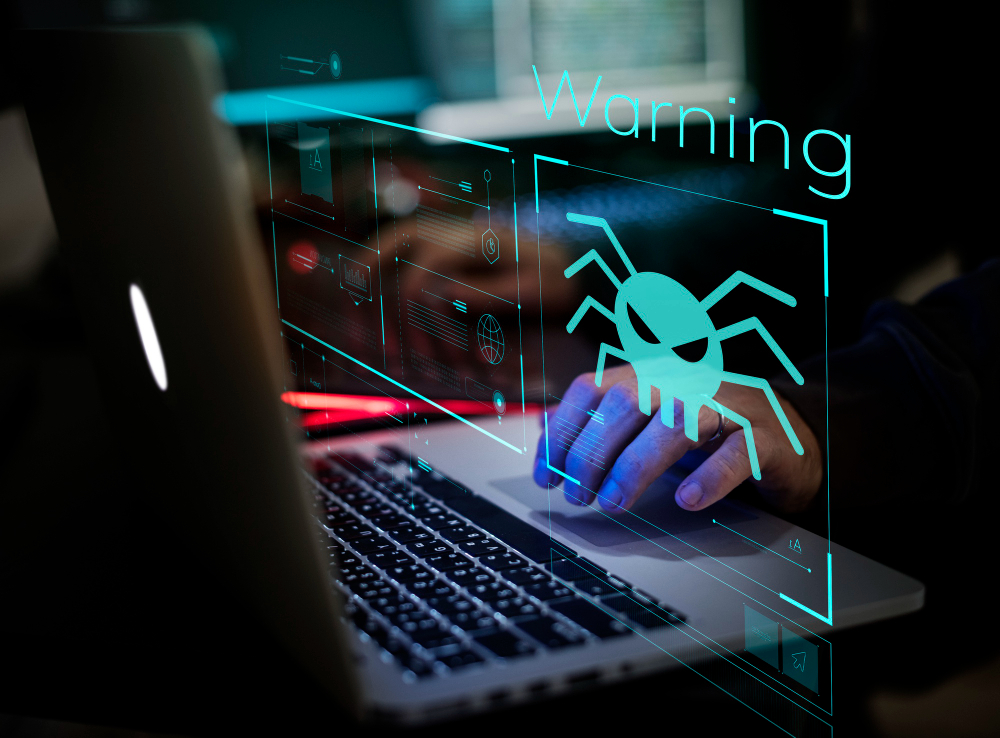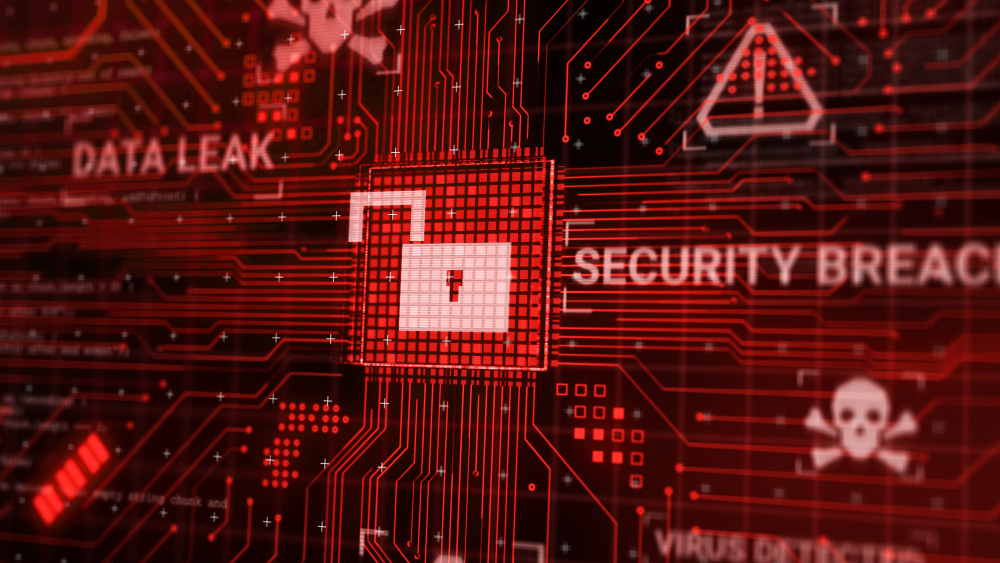
Malware, short for malicious software, refers to any software that is designed to harm or exploit a computer system. Malware can take many forms, including viruses, worms, Trojans, ransomware, and more.
One of the main problems with malware is that it can be difficult to detect. Malware can be disguised as legitimate software or bundled with other software, making it hard to identify. Once a malware infection has occurred, it can be difficult to remove, as it can be deeply embedded in the system and may have established itself as a trusted process. This can make it hard to distinguish from legitimate system processes, and removing it can be risky as it may cause the system to become unstable or even crash.
Another problem with malware is that it can have a wide range of negative consequences for the victim. Malware can steal personal information, disrupt system functions, or even render a system unusable. In some cases, malware can even be used to carry out cyber attacks, such as DDoS (distributed denial of service) attacks, which can take down entire networks or websites.
The best way to protect against malware is to practice good cybersecurity hygiene. This includes keeping your operating system and antivirus software up to date, avoiding suspicious links and downloads, and using strong, unique passwords for all of your accounts. It’s also a good idea to regularly back up your important data so that you can restore your system if it becomes infected with malware.
In conclusion, malware can be a serious problem for individuals and organizations, and it can be difficult to fix malware issues once they occur. However, prevention is always the best cure when it comes to malware, and following good cybersecurity practices can help protect you and your systems from these types of threats.
Types of Malware To Beware

Malware, or malicious software, is a type of software designed to harm or exploit computer systems. There are many different types of malware, each with its own unique characteristics and methods of operation.
Viruses are a common type of malware that replicates by attaching themselves to host files, such as documents or executable programs. When the host file is opened, the virus is activated and can spread to other files or systems. Viruses can cause a range of problems, from displaying pop-up messages to corrupting or deleting important data.
Worms are another type of malware that spread by exploiting vulnerabilities in networks or systems. They can replicate themselves and move from one system to another without any human intervention, causing problems such as slowing down networks, consuming bandwidth, or even taking down entire networks.
Trojans are malware that disguises themselves as legitimate programs or files in order to trick users into downloading and installing them. Once installed, Trojans can give attackers access to a victim’s system, allowing them to steal sensitive information or take control of the system.
Ransomware is malware that encrypts a victim’s files, making them inaccessible until a ransom is paid to the attacker. This can cause significant disruptions for individuals and organizations, as it can prevent access to important data and systems until the ransom is paid.
Adware is malware that displays unwanted advertisements on a victim’s computer. It can be bundled with other software and can be difficult to remove, generating pop-up ads or redirecting web browser traffic to unwanted sites.
Spyware is malware that tracks a victim’s online activity and can be used to steal sensitive information such as passwords and credit card numbers. It can be installed through various means, including downloading infected files or visiting compromised websites.
Rootkits are a type of malware that gives attackers unauthorized access to a victim’s system. They can be used to take control of a system, steal sensitive information, or even cover up the fact that the system has been compromised. Rootkits can be difficult to detect and remove, as they can hide from standard security tools.
In general, malware can spread through various means, including downloading infected files, visiting compromised websites, opening spam emails or attachments, or vulnerabilities in a system or network. Malware can have a range of negative consequences for victims, from minor annoyances to major disruptions and data loss. It is important to practice good cybersecurity hygiene in order to protect against these types of threats. This includes keeping your operating system and antivirus software up to date, avoiding suspicious links and downloads, and using strong, unique passwords for all accounts. Regularly backing up important data can also help protect against malware infections, as it allows you to restore your system if it becomes infected.
How to Avoid Malware Attacks

There are many different types of malware, each with its own unique characteristics and methods of operation. To avoid different types of malware, there are a few steps you can take:
For viruses, it’s important to keep your operating system and antivirus software up to date, as this will help protect against new viruses that are constantly being developed. You should also avoid downloading files from unknown or untrusted sources, as these could potentially contain viruses. Be cautious when opening email attachments, especially from unknown senders, and don’t click on links in emails or instant messages from unfamiliar sources. Additionally, be wary of free software and downloads, as these may be bundled with viruses.
To protect against worms, it’s important to keep your operating system and antivirus software up to date and to install patches and updates as soon as they become available. You should also avoid downloading files from unknown or untrusted sources and avoid visiting suspicious websites. Using a firewall can also help block unauthorized access to your network, which can prevent worms from spreading.
To avoid Trojans, you should be cautious when downloading files, especially from unknown or untrusted sources. Be cautious when opening email attachments, especially from unknown senders, and don’t click on links in emails or instant messages from unfamiliar sources. Using a reputable antivirus program to scan downloaded files before opening them can also help detect and prevent Trojans. Be wary of free software and downloads, as these may be bundled with Trojans.
To protect against ransomware, you should keep your operating system and antivirus software up to date and install patches and updates as soon as they become available. You should also avoid downloading files from unknown or untrusted sources and visiting suspicious websites. Using a reputable antivirus program to scan downloaded files before opening them can also help prevent ransomware infections. Regularly backing up your important data can also help protect against ransomware, as it allows you to restore your system if it becomes infected.
To avoid adware, you should be cautious when downloading files, especially from unknown or untrusted sources. Be cautious when opening email attachments, especially from unknown senders, and don’t click on links in emails or instant messages from unfamiliar sources. Using a reputable antivirus program to scan downloaded files before opening them can also help prevent adware infections.
Spyware is a type of malware that tracks a victim’s online activity and can be used to steal sensitive information such as passwords and credit card numbers. To protect against spyware, it’s important to keep your operating system and antivirus software up to date and to install patches and updates as soon as they become available. This helps protect against new spyware that is constantly being developed. You should also avoid downloading files from unknown or untrusted sources and visiting suspicious websites, as these could potentially contain spyware. Using a reputable antivirus program to scan downloaded files before opening them can also help prevent spyware infections. Additionally, using a firewall to block unauthorized access to your network can help prevent spyware from spreading.
Rootkits are a type of malware that gives attackers unauthorized access to a victim’s system. They can be used to take control of a system, steal sensitive information, or even cover up the fact that the system has been compromised. Rootkits can be difficult to detect and remove, as they can hide from standard security tools. To protect against rootkits, it’s important to keep your operating system and antivirus software up to date and to install patches and updates as soon as they become available. You should also avoid downloading files from unknown or untrusted sources and visiting suspicious websites, as these could potentially contain rootkits. Using a reputable antivirus program to scan downloaded files before opening them can also help prevent rootkit infections. Additionally, using a firewall to block unauthorized access to your network can help prevent rootkits from spreading.
By following these steps, you can help protect your computer and personal information from different types of malware. Remember, prevention is always the best cure when it comes to malware, so it’s important to be proactive in safeguarding your system. This includes keeping your operating system and antivirus software up to date, avoiding suspicious links and downloads, and using strong, unique passwords for all accounts. Regularly backing up important data can also help protect against malware infections, as it allows you to restore your system if it becomes infected.
Investing in Anti-Virus Software is Key to Network Security

Investing in anti-virus software is a crucial step in securing a computer network. Anti-virus software is designed to detect, prevent, and remove malware, including viruses, worms, Trojans, ransomware, adware, spyware, and rootkits. By continuously scanning a system for these types of threats, anti-virus software can help protect against malware infections and associated risks.
One of the key benefits of investing in anti-virus software is that it can help prevent malware from spreading to other systems on the network. If a single system becomes infected with malware, it can quickly spread to other systems on the network if not properly protected. This can lead to significant disruptions and data loss for individuals and organizations. Anti-virus software can help prevent this from happening by detecting and removing malware before it has a chance to spread.
Another benefit of anti-virus software is that it can help protect against new and emerging threats. Malware is constantly evolving, and new threats are constantly being developed. Anti-virus software is designed to adapt to these changes and provide ongoing protection against new threats. This is especially important for businesses, as they often have more sensitive data that needs to be protected.
In addition to providing protection against malware, anti-virus software can also help improve overall system performance. Malware can slow down systems and consume resources, leading to decreased productivity and efficiency. By removing malware, anti-virus software can help improve system performance and speed.
Overall, investing in anti-virus software is a key part of maintaining network security. It can help prevent malware infections, protect against new and emerging threats, and improve system performance. It’s important to choose a reputable and reliable anti-virus software provider and to keep the software up to date in order to maximize protection.
The Bottom Line
Investing in anti-virus software is a key component of maintaining the security of a computer network. Anti-virus software is designed to detect, prevent, and remove various types of malware, including viruses, worms, Trojans, ransomware, adware, spyware, and rootkits. These types of malware can cause a range of problems, from minor annoyances like displaying pop-up ads to serious issues like data loss, system disruptions, and unauthorized access to sensitive information.
Anti-virus software works by continuously scanning a system for signs of malware and taking action to remove it when detected. This can help prevent malware from spreading to other systems on the network and minimize the potential impacts of a malware infection. In addition to providing protection against malware, anti-virus software can also help improve overall system performance by freeing up resources that may have been consumed by malware.
To maximize the effectiveness of anti-virus software, it’s important to choose a reputable and reliable provider. There are many options available, and it’s important to carefully research and compare different products before making a decision. It’s also important to keep the software up to date, as new threats are constantly being developed. This can be done automatically through updates provided by the software provider, or it can be done manually by downloading and installing the latest version of the software.
Overall, investing in anti-virus software is a crucial step in preventing malware attacks and maintaining the security of a computer network. By choosing a reputable and reliable provider and keeping the software up to date, you can help protect against a wide range of threats and minimize the potential impacts of a malware infection.






